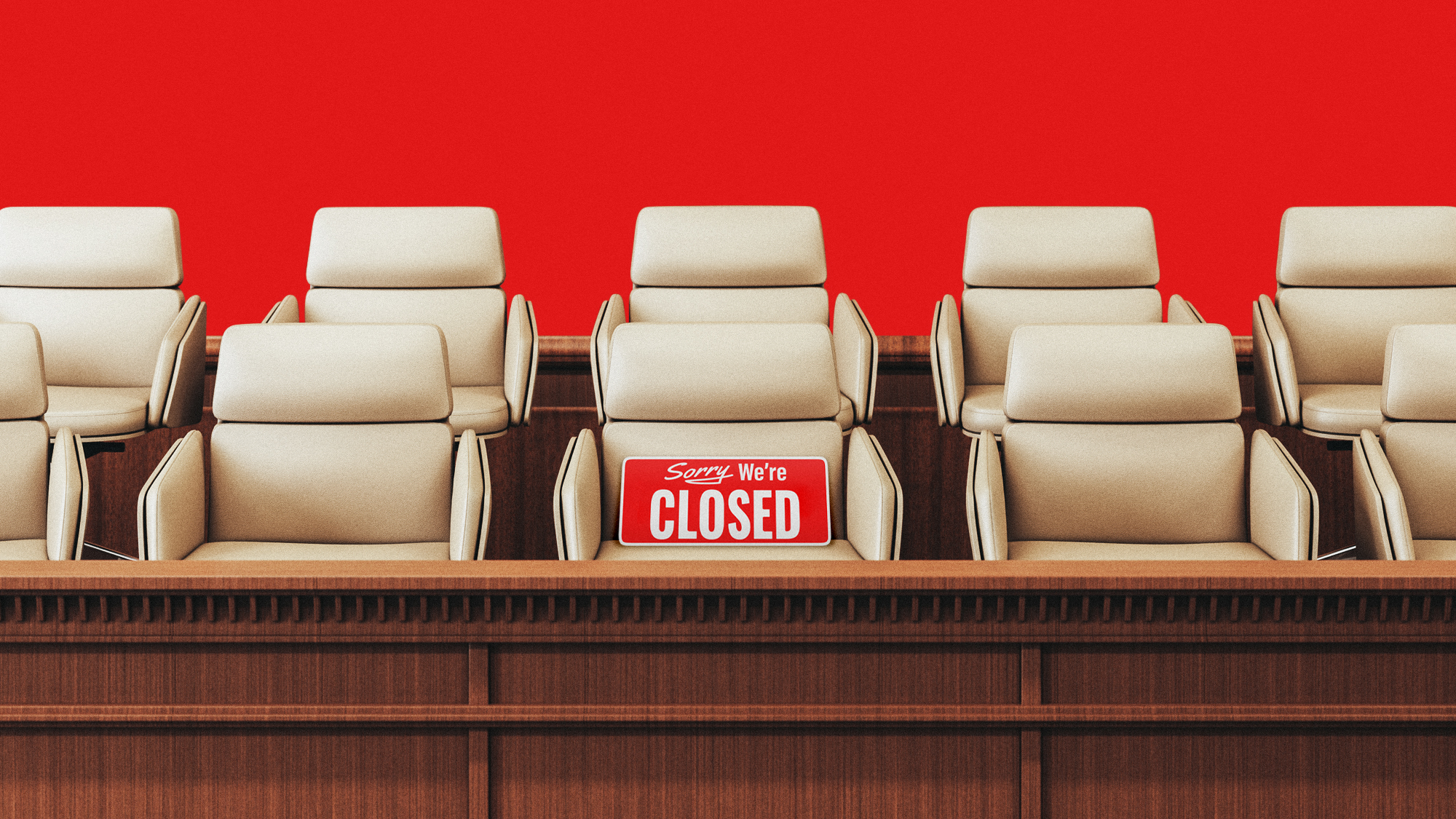Hong Kong passes tough new security law
It will allow the government to further suppress all forms of dissent


A free daily email with the biggest news stories of the day – and the best features from TheWeek.com
You are now subscribed
Your newsletter sign-up was successful
What happened
Hong Kong on Tuesday passed a new national security law, Article 23, that gives the government broad powers to suppress all forms of dissent.
Who said what
Article 23 is needed to guard against "potential sabotage and undercurrents that try to create troubles," particularly "ideas of an independent Hong Kong," said the territory's Beijing-backed leader, John Lee. "Today is a historic moment for Hong Kong." The law will "usher Hong Kong into a new era of authoritarianism," said a statement from Human Rights Watch's Maya Wang.
The commentary
Beijing "promised to preserve Hong Kong's civil liberties for 50 years" when the former British colony was returned to Chinese rule in 1997, said Al Jazeera. In the past few years, those liberties have been steadily chipped away.
The Week
Escape your echo chamber. Get the facts behind the news, plus analysis from multiple perspectives.

Sign up for The Week's Free Newsletters
From our morning news briefing to a weekly Good News Newsletter, get the best of The Week delivered directly to your inbox.
From our morning news briefing to a weekly Good News Newsletter, get the best of The Week delivered directly to your inbox.
What next?
The new law takes effect on Saturday, immediately introducing stringent penalties for a wide range of actions deemed to be a threat to national security. The most severe charges — including treason and insurrection — are punishable by life in prison.
A free daily email with the biggest news stories of the day – and the best features from TheWeek.com
Peter has worked as a news and culture writer and editor at The Week since the site's launch in 2008. He covers politics, world affairs, religion and cultural currents. His journalism career began as a copy editor at a financial newswire and has included editorial positions at The New York Times Magazine, Facts on File, and Oregon State University.
-
 6 of the world’s most accessible destinations
6 of the world’s most accessible destinationsThe Week Recommends Experience all of Berlin, Singapore and Sydney
-
 How the FCC’s ‘equal time’ rule works
How the FCC’s ‘equal time’ rule worksIn the Spotlight The law is at the heart of the Colbert-CBS conflict
-
 What is the endgame in the DHS shutdown?
What is the endgame in the DHS shutdown?Today’s Big Question Democrats want to rein in ICE’s immigration crackdown
-
 The countries around the world without jury trials
The countries around the world without jury trialsThe Explainer Legal systems in much of continental Europe and Asia do not rely on randomly selected members of the public
-
 ABC News to pay $15M in Trump defamation suit
ABC News to pay $15M in Trump defamation suitSpeed Read The lawsuit stemmed from George Stephanopoulos' on-air assertion that Trump was found liable for raping writer E. Jean Carroll
-
 Judge blocks Louisiana 10 Commandments law
Judge blocks Louisiana 10 Commandments lawSpeed Read U.S. District Judge John deGravelles ruled that a law ordering schools to display the Ten Commandments in classrooms was unconstitutional
-
 The EU's landmark AI Act 'rushed' out as countdown begins on compliance
The EU's landmark AI Act 'rushed' out as countdown begins on complianceThe Explainer 'We will be hiring lawyers while the rest of the world is hiring coders' – Europe's warning about new AI legislation
-
 The growing US movement to end child marriages
The growing US movement to end child marriagesUnder the Radar Practice is 'surprisingly widespread' but only 12 states have so far banned it
-
 ATF finalizes rule to close 'gun show loophole'
ATF finalizes rule to close 'gun show loophole'Speed Read Biden moves to expand background checks for gun buyers
-
 France enshrines abortion rights in constitution
France enshrines abortion rights in constitutionspeed read It became the first country to make abortion a constitutional right
-
 Texas executes man despite contested evidence
Texas executes man despite contested evidenceSpeed Read Texas rejected calls for a rehearing of Ivan Cantu's case amid recanted testimony and allegations of suppressed exculpatory evidence
